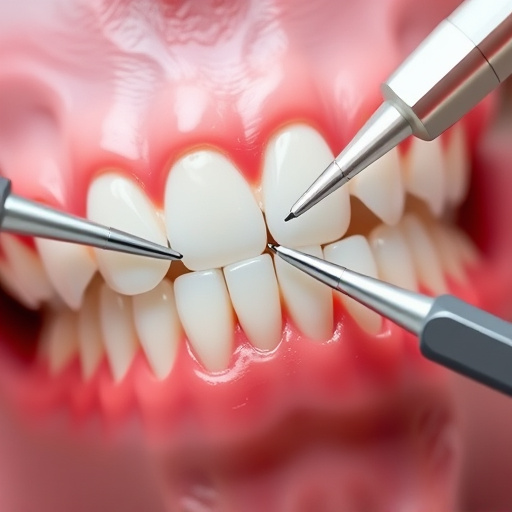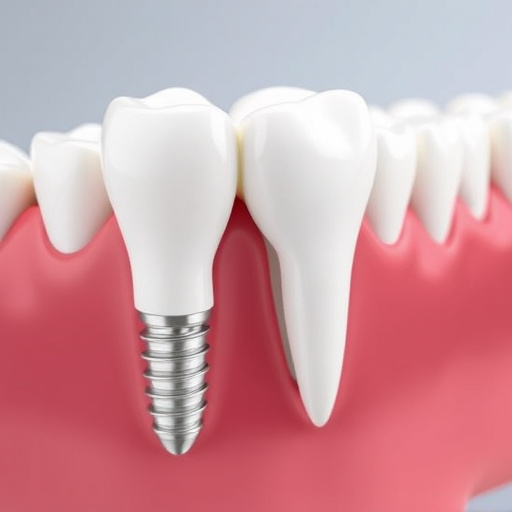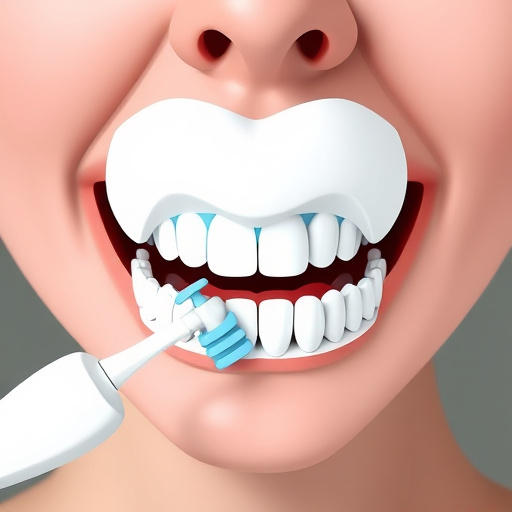Special needs dentistry is a specialized field addressing the unique oral healthcare requirements of individuals with physical, mental, or developmental disabilities. By creating supportive environments and tailoring treatments to individual needs, using advanced techniques and adaptive equipment, this approach ensures effective care for diverse patient populations, including those with sensory impairments, limited mobility, or conditions like autism spectrum disorder (ASD). Services range from routine check-ups to complex procedures, promoting oral health and quality of life.
In the realm of oral healthcare, Special Needs Dentistry emerges as a crucial discipline, focusing on providing comprehensive care for individuals with diverse requirements. This unique approach addresses the specific challenges faced by patients with disabilities, sensory issues, or complex medical conditions. Understanding this specialized field is essential to ensure patient safety and create an inclusive dental experience. From defining special needs dentistry to implementing best practices, this article explores strategies that prioritize the well-being of every patient, highlighting the significance of evidence-based practices and adapted facilities in modern dental care.
- Understanding Special Needs Dentistry: A Unique Approach to Patient Care
- – Defining special needs dentistry and its significance in oral healthcare
- – Identifying various patient populations requiring specialized attention
Understanding Special Needs Dentistry: A Unique Approach to Patient Care

Special needs dentistry is a specialized field that focuses on providing dental care to patients with diverse requirements and challenges. It goes beyond the conventional approach by acknowledging that every patient has unique needs, especially those with physical, cognitive, or developmental disabilities. This niche area of dentistry demands a tailored strategy, ensuring comprehensive dental care while prioritizing patient safety and comfort.
In this context, special needs dentistry offers more than just basic dental treatments; it involves creating a supportive environment where patients feel secure and understood. It encompasses various services, from routine check-ups to complex procedures like tooth repair and cosmetic dentistry (when medically appropriate), all designed to cater to the specific needs of each individual. Through advanced techniques and adaptive equipment, dentists in this field ensure accurate diagnoses and effective treatment plans, fostering a sense of trust and cooperation from patients and their caregivers.
– Defining special needs dentistry and its significance in oral healthcare

Special needs dentistry is a specialized field focused on providing oral healthcare services to individuals with diverse physical, mental, or developmental disabilities. It goes beyond conventional dental care by addressing unique challenges and requirements specific to this patient population. These may include physical limitations, cognitive impairments, sensory sensitivities, or behavioral issues that can complicate routine dental procedures. By tailoring their approach to each patient’s distinct needs, special needs dentists ensure safe, comfortable, and effective treatment.
This specialized practice is crucial in promoting oral health and quality of life for individuals who might otherwise face barriers to accessing regular dental care. It encompasses a range of services, from preventive measures like cleanings and x-rays to restorative dentistry procedures such as fillings, crowns, and implants. For instance, using cosmetic fillings can help restore the smile and confidence of children with special needs, while also addressing their oral health concerns.
– Identifying various patient populations requiring specialized attention

Special needs dentistry caters to a diverse range of patient populations with unique requirements, ensuring that every individual receives the highest level of care tailored to their specific needs. These populations include individuals with physical disabilities, sensory impairments, intellectual or developmental disorders, and those undergoing treatment for medical conditions that may impact oral health. For instance, patients requiring assistance with feeding or those with limited mobility need extra support during dental procedures, such as specialized chairs or equipment that accommodate their physical limitations.
Children’s dentistry within the special needs spectrum involves addressing the specific fears and behavioral challenges often associated with young patients. This may include children with autism spectrum disorder (ASD) who might require a calm, structured environment free from sensory overload. By employing techniques like behavior management strategies and providing clear communication, dentists can make tooth extractions or general dentistry procedures more comfortable for these patients.
Special needs dentistry is a vital field that ensures comprehensive oral care for individuals with diverse requirements. By tailoring treatments to specific needs, this approach promotes patient safety and comfort. Understanding the unique challenges faced by these patients is key to fostering inclusive dental practices. Embracing special needs dentistry not only benefits individual patients but also contributes to creating a more accessible and inclusive dental landscape for everyone.














